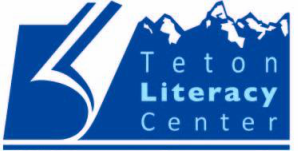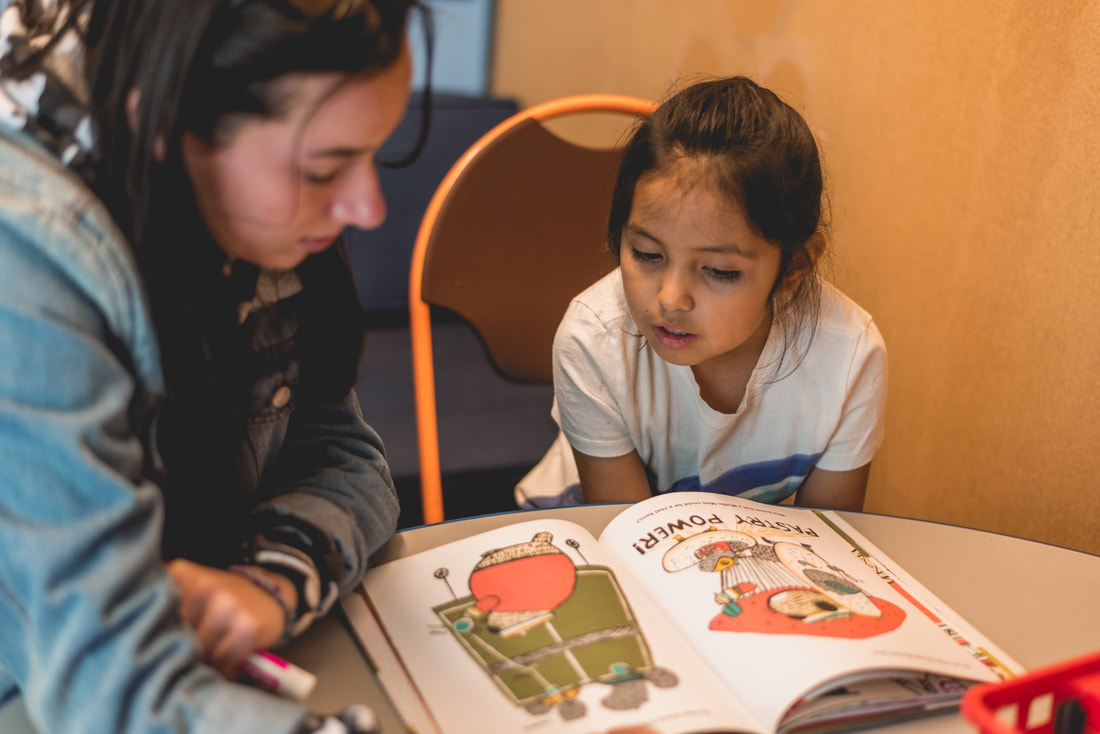Volunteer Tutor Resources
We are so excited to have students and volunteers back in our office! You, as tutors, are the heart and soul of our programming, and we are grateful that you are willing to spend your time helping our students and creating lasting bonds. We want to offer more resources for our volunteer tutors. Below are some of the most common parts of our tutoring curriculum.
Please feel free to contact Anja Carlson at [email protected] if you have any questions or concerns.
Please feel free to contact Anja Carlson at [email protected] if you have any questions or concerns.
Tutor Tips and Tricks for Success!
- Build confidence through positive reinforcement and patience.
- Encourage independence in reading - allow them to struggle for a minute before jumping in to help/correct them.
- Talk about your own love of reading and writing. Students are using you as a role model!
- Children thrive on routine. Try to establish a good one at the start of your relationship with your student!
- Voice and choice: students work well if they have a choice on what they are doing. Create a facade of choice by asking your student which activity in the lesson plan they would like to do first!
- Keep them interested by engaging your student with invigorating questions about themselves and the materials you are working on!
- It’s okay to take breaks! We would much rather you take a 5 minute break then have the student lose interest in the activity.
Word WorkWord work is a key element of building a student’s ability to read. Work work includes working on spelling, vocabulary, and grammar rules within the English language. Not only does word work help build a strong understanding of grammatical structures, but it also helps with word recognition when reading!
|
Reading BehaviorsFontas & Pinnell has established a guided reading level program that guides educators on reading progression. This is the scale we use in order to know what books/vocabulary the student is working on. We gather this information via tri-yearly assessments. See the button above for our reading behaviors document for more information!
|
Story ChampsComprehension is a key aspect of literacy. Without comprehending the text, the student is not gaining understanding of what they’re reading. Story Champs is a tool to establish techniques to improve comprehension for students in elementary school. In this technique they come to know the elements of a story, and the order in which they generally appear.
|
How to Read a Tutoring Lesson Plan
Video Resources
Tutoring Lesson Plans |
ESL Lesson Plans |
Tutoring Common Definitions for Tutors
- Word Work: Word work is a key element of building a student’s ability to read. Work work includes working on spelling, vocabulary, and grammar rules within the English language. Not only does word work help build a strong understanding of grammatical structures, but it also helps with word recognition when reading!
- Instructional Reading Level: This is the scale we use in order to know what books/vocabulary the student is working on. We gather this information via tri-yearly assessments. See reading behaviors document for more information!
- Fluency: Fluency is the way in which you read (i.e. pace, rate, accuracy, expression, punctuation)
- Sight Words: Sight words are words that are common in the books students read at different grade/reading levels. These are words that students should be able to immediately recognize while reading.
- CVCe, CVVC, CVC, etc.: C = Consonant, V = Vowel, e = silent/bossy “e”.
Have a question? We're here to help!
Tutoring FAQs
What would I be doing as a tutor?
Volunteer tutors provide weekly instruction in one of the following basic skills: reading, word work, and writing. Volunteers also help students with skills related to personal literacy needs and goals! Generally, tutors are placed with a student and work in a one-on-one or small group situation.
When do the sessions take place?
Teton Literacy Center has sessions scheduled Monday to Thursday at 3:00, 4:00, 5:00, and 6:00 PM. Your child will attend 1 session per week. Each session is one hour long.
How long does it take?
Tutors are asked to meet with their students once a week. A typical tutoring session lasts around an hour.
Where does tutoring take place?
Tutoring takes place at Teton Literacy Center.
1715 High School Rd. #260
Jackson, WY 83002
What are the qualifications needed to be a tutor?
Volunteers must share their love of reading and writing with their students, be their student’s biggest cheerleaders, and have empathy for others. In addition, they must have enthusiasm, patience, willingness to accept others’ differences, and understand their needs.
Do I need to speak a foreign language to help?
Volunteers do not need to speak a foreign language.
What if I have never taught before?
Don’t worry, we will train you!
What kind of training will I need?
New volunteers are required to attend a one-hour informational session. Additional training and workshops are offered throughout the year to support you and your learner’s needs.
How do I get started?
Prospective volunteers should submit a volunteer application. Please email [email protected] for more information.
What would I be doing as a tutor?
Volunteer tutors provide weekly instruction in one of the following basic skills: reading, word work, and writing. Volunteers also help students with skills related to personal literacy needs and goals! Generally, tutors are placed with a student and work in a one-on-one or small group situation.
When do the sessions take place?
Teton Literacy Center has sessions scheduled Monday to Thursday at 3:00, 4:00, 5:00, and 6:00 PM. Your child will attend 1 session per week. Each session is one hour long.
How long does it take?
Tutors are asked to meet with their students once a week. A typical tutoring session lasts around an hour.
Where does tutoring take place?
Tutoring takes place at Teton Literacy Center.
1715 High School Rd. #260
Jackson, WY 83002
What are the qualifications needed to be a tutor?
Volunteers must share their love of reading and writing with their students, be their student’s biggest cheerleaders, and have empathy for others. In addition, they must have enthusiasm, patience, willingness to accept others’ differences, and understand their needs.
Do I need to speak a foreign language to help?
Volunteers do not need to speak a foreign language.
What if I have never taught before?
Don’t worry, we will train you!
What kind of training will I need?
New volunteers are required to attend a one-hour informational session. Additional training and workshops are offered throughout the year to support you and your learner’s needs.
How do I get started?
Prospective volunteers should submit a volunteer application. Please email [email protected] for more information.


